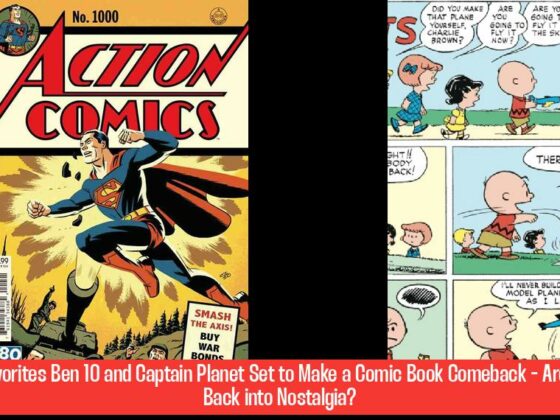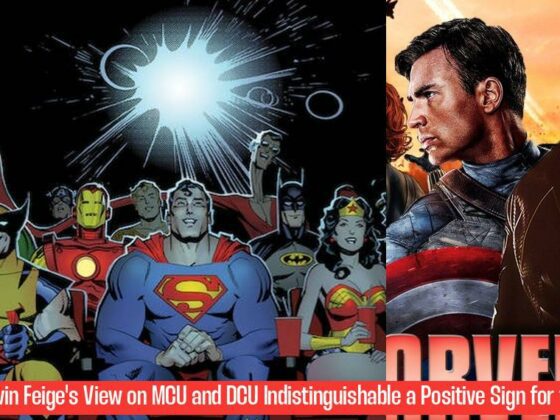Marvel’s Erasure of Sabra’s Israeli Identity: A Controversial Move in “Captain America: Brave New World”
In the ever-expanding universe of Marvel Cinematic Universe (MCU), the upcoming film, “Captain America: Brave New World,” has stirred up a storm of controversy surrounding the character of Sabra. Originally depicted in Marvel Comics as an Israeli superhero working for the Mossad, the Israeli secret service, Sabra’s identity has been significantly altered in the film, sparking heated debates among fans and critics alike.
The casting of Israeli actress Shira Haas as Sabra in 2022 generated excitement among pro-Israel advocates, who saw it as a significant step in representing Israeli culture and identity on the global stage. However, the initial joy was short-lived, as the released trailer for the film revealed a radical departure from the original comic book portrayal of Sabra.
Instead of the Mossad agent known as Sabra, the film introduces Ruth, a character seemingly devoid of any Israeli background. The alteration of Sabra’s identity has sparked significant backlash, with both pro-Israel and anti-Israel factions expressing their discontent. Pro-Israel advocates argue that the removal of Sabra’s Israeli allegiance undermines the character’s core identity and sends a disheartening message about the representation of Israelis in popular culture.
On the other hand, anti-Israel critics view the character’s original Israeli origins as problematic, associating her with the controversial policies of the Israeli government. They argue that the removal of Sabra’s Israeli identity is a positive step, preventing the normalization of Israeli actions that they deem to be detrimental to Palestinian rights.
The Controversy Surrounding Sabra’s Identity
The controversy surrounding Sabra’s identity highlights the complex and sensitive nature of representing Israeli culture and politics in popular media. On one hand, there is a desire to portray Israel and its people authentically, showcasing their diversity and contributions to the world. On the other hand, there are concerns about the potential for perpetuating narratives that perpetuate harmful stereotypes or legitimize controversial actions.
The decision to erase Sabra’s Israeli identity in the film raises questions about the responsibility of filmmakers in representing diverse cultures and the potential impact of such representations on real-world perceptions. It also highlights the challenges of navigating geopolitical complexities within the realm of entertainment.
Marvel’s decision to alter Sabra’s identity has been met with mixed reactions, with some fans expressing disappointment and others welcoming the change. The debate surrounding Sabra’s identity underscores the delicate balance between artistic freedom and cultural sensitivity, particularly in a globalized world where representation and authenticity are increasingly important.
The Significance of Sabra’s Original Identity
Sabra’s original depiction in Marvel Comics as an Israeli Mossad agent was groundbreaking, offering a unique perspective on the Israeli experience and representing a powerful female character who embodies both strength and intelligence. Her identity as an Israeli superhero served as a source of pride for many Israelis, who saw her as a symbol of their nation’s strength and resilience.
The decision to remove Sabra’s Israeli identity in the film has been met with disappointment by many fans and critics who appreciate the character’s original portrayal. They argue that the change diminishes the character’s depth and complexity, robbing her of her unique backstory and cultural context.
For some, Sabra’s Israeli identity was an integral part of her character, representing a powerful female figure who navigated a complex geopolitical landscape. Removing this aspect of her identity, they argue, reduces her to a generic superhero, devoid of the richness and nuance that made her compelling in the comics.
The Impact of Marvel’s Decision
Marvel’s decision to erase Sabra’s Israeli identity has sparked a larger conversation about representation and authenticity in popular culture. The film’s portrayal of Sabra has been criticized for its lack of sensitivity and for perpetuating a narrow and stereotypical view of Israeli identity.
The decision has also raised concerns about the potential for promoting harmful stereotypes and misconceptions about Israelis and their culture. For some, the erasure of Sabra’s Israeli identity sends a message that the representation of Israelis in popular culture is not valued or deemed important.
The controversy surrounding Sabra’s identity highlights the importance of accurate and nuanced representation in popular culture, ensuring that stories reflect the diversity and complexity of the world we live in. It also underscores the need for careful consideration of the potential impact of filmmakers’ decisions on real-world perceptions.
The Future of Sabra in the MCU
It remains to be seen how Sabra’s character will be developed in “Captain America: Brave New World” and how her altered identity will be incorporated into the film’s narrative. The film’s release will likely be met with a mixed reception, as fans grapple with the significant changes to a beloved character.
Regardless of the film’s reception, the controversy surrounding Sabra’s identity has already sparked a valuable conversation about representation and authenticity in popular culture. It has forced us to confront the complex and often sensitive issues surrounding cultural representation and the responsibility of filmmakers to portray diverse identities responsibly and respectfully.
As the MCU continues to expand its reach and influence, it is crucial that it embraces diversity and representation in a way that is both accurate and sensitive. The future of Sabra and other Israeli characters in the MCU will be closely watched, as fans and critics alike continue to debate the importance of authentic and responsible representation.
What is the controversy surrounding Sabra’s identity in the upcoming Marvel movie “Captain America: Brave New World”?
The controversy stems from Marvel’s decision to erase Sabra’s Israeli identity, a character originally depicted as an Israeli superhero working for the Mossad in the comics.
Who was cast to play the character of Sabra in the film, and why did it generate excitement?
Israeli actress Shira Haas was cast as Sabra in 2022, generating excitement among pro-Israel advocates as a significant step in representing Israeli culture and identity on a global platform.
What is the significance of the alteration of Sabra’s identity in the film, according to pro-Israel advocates and anti-Israel critics?
Pro-Israel advocates argue that removing Sabra’s Israeli allegiance undermines the character’s core identity, while anti-Israel critics see it as a positive step to prevent normalization of Israeli actions they deem detrimental to Palestinian rights.
What broader questions does the erasure of Sabra’s Israeli identity in the film raise about the representation of diverse cultures in popular media?
The decision to erase Sabra’s Israeli identity raises questions about filmmakers’ responsibility in representing diverse cultures and the potential impact of such representations on real-world perceptions.



